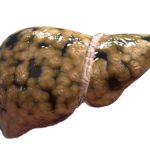By David Blyweiss, M.D., Advanced Natural Wellness
Cranberries are a favorite accompaniment to most holiday feasts. But if you think beyond that red gelatinous cylinder that is passed with the turkey and dressing, you ’ll find that these little red berries offer up a host of health benefits.
The most well-known benefit is cranberries ability to thwart urinary tract infections by preventing bacteria from sticking to the urinary tract wall. According to new evidence out of Rutgers University, the proanthocyanidins in cranberries are so effective that they can provide at least eight-hours of protection against E. coli and other bacteria that cause UTIs.
Need more evidence? One study was conducted at the Finnish Student Health Services at Oulu University with 150 women with persistent UTIs. Fifty drank cranberry juice daily for six months. Another 50 drank a probiotic preparation, while the final 50 women were given no treatment at all. After six months, only eight women taking the cranberry juice experienced a bladder infection, compared with 19 of those taking probiotics and 18 not taking anything.
But UTIs are just the beginning of cranberries healing abilities. The anti-adhesion properties of cranberry may also inhibit the bacteria associated with gum disease. Studies presented at a recent Cranberry Institute Health Research Conference indicate that the proanthocyanidins in cranberry help prevent oral bacteria from adhering to tooth and denture surfaces, thereby helping to protect against cavities and gum disease.
Cranberries can also help keep your heart healthy. In fact, preliminary studies show that the tart juice can prevent the development of atherosclerosis. Atherosclerosis is the accumulation of waxy plaque which is made up of LDL (bad) cholesterol and fatty material. This buildup of fat eventually slows down or stops blood flow, leading to chest pain (angina), a heart attack or stroke. But the flavonoids in cranberries help reduce the amount of (LDL) cholesterol clogging the walls of your arteries while increasing the level of HDL (good) cholesterol in your system.
A number of ongoing studies are also evaluating the role cranberries may have in preventing certain cancers. Preliminary in vitro studies conducted at the University of Massachusetts found that compounds in cranberries limit the growth of human breast, colon and prostate tumor cells in a dose-dependent manner. Researchers at the University of Western Ontario have also found that cranberry extract impairs the growth of eight different types of cancer—at least in preliminary lab tests.
Are You Suffering From...
- Love handles and a pot belly
- Romance that isn't what it used to
- Forgetfulness and inattention
- Low (or no) strength and endurance
- A sex drive that's shifted into neutral...or worse
If so...you may have Mature Male Burnout. Click here to discover more about this unique condition and what you can do about it.
While more studies are needed, the signs are good. Who knows? We may even find that the nutrients in cranberries—especially the proanthocyanidins, vitamin C and manganese—may also play a role in gastrointestinal health and protection against bacterial, fungal and even viral illnesses.
For now, however, there is clear evidence that you can protect against bladder infections, prevent cavities and gum disease, and reduce your risk of developing clogged arteries with this small but mighty berry. To get these benefits, I recommend drinking four to six ounces of unsweetened cranberry juice twice daily. But let me warn you, most commercial juices are laden with sugar—and unsweetened varieties can be quite tart. You can get the same benefit by taking cranberry extract in supplement form. Simply take 400 mg. of a standardized cranberry extract twice a day for protection that isn’t just limited to the holidays!
References:
Neto CC. Anticancer activities of cranberry phytochemicals: an update. Molecular Nutrition & Food Research. 2008;52:S18-27.
Reed, J. Cranberry flavonoids, atherosclerosis and cardiovascular health. Critical Reviews in Food Science & Nutrition. 2002;42: S301-S316.
Shmuely H, et al. Susceptibility of isolates to the antiadhesion activity of a high-molecular-weight constituent of cranberry. Diagnostic Microbiology and Infectious Disease. 2004;50: 231-235.






